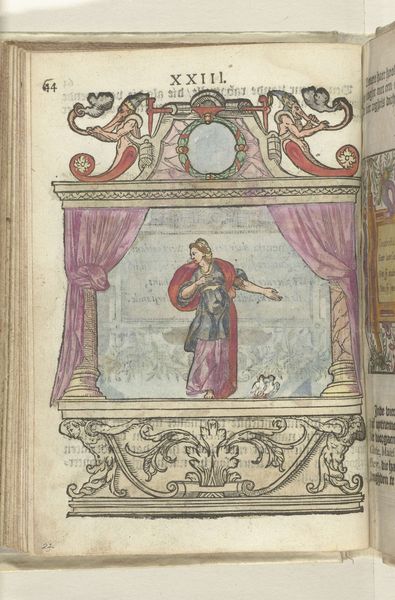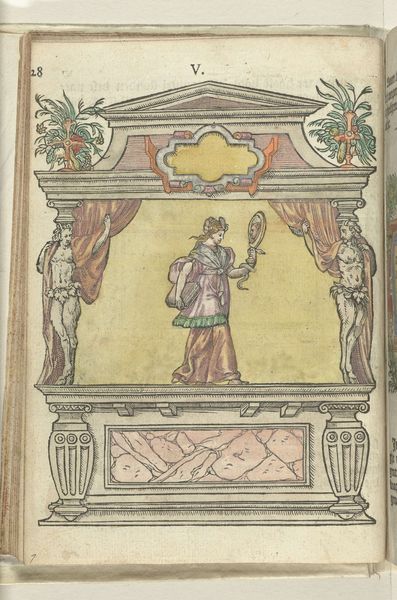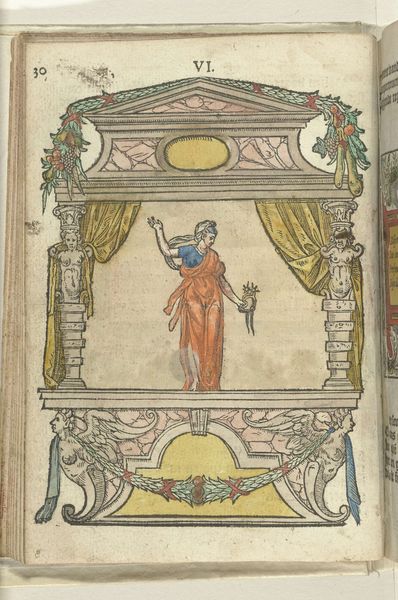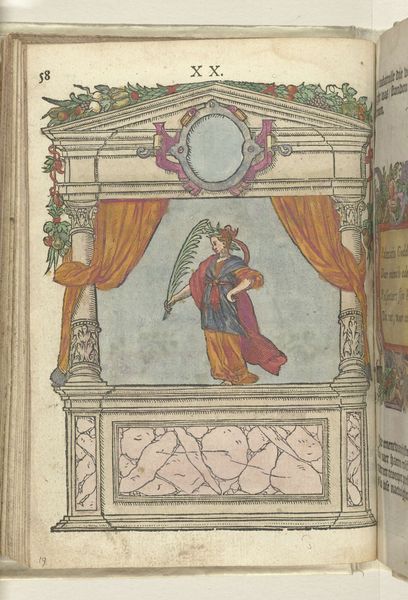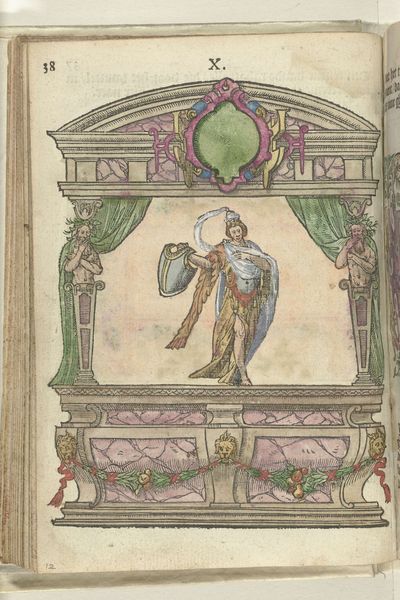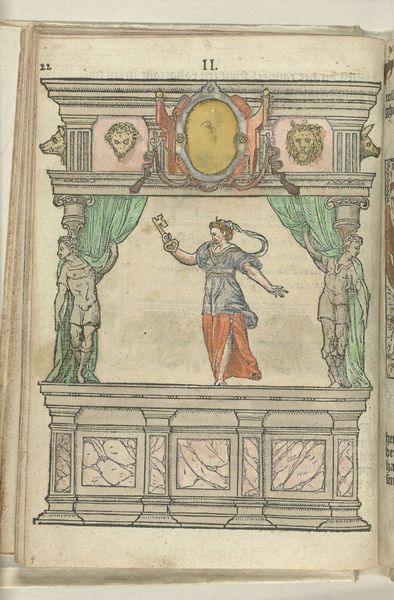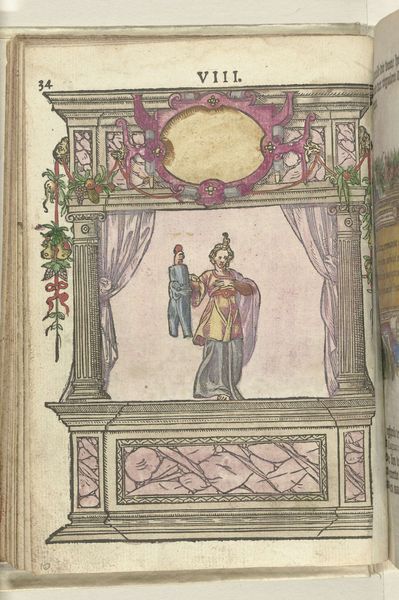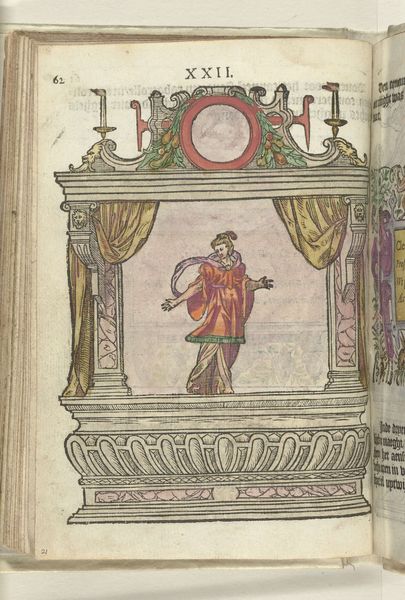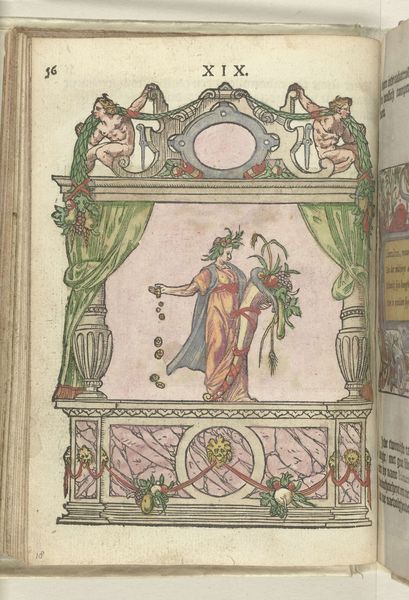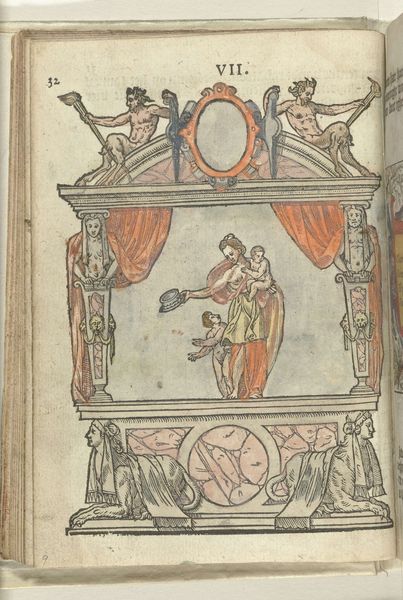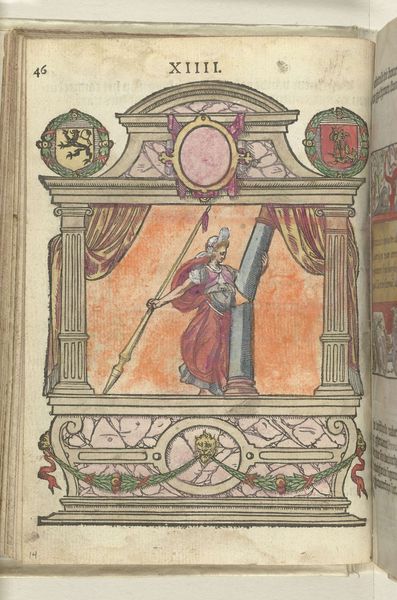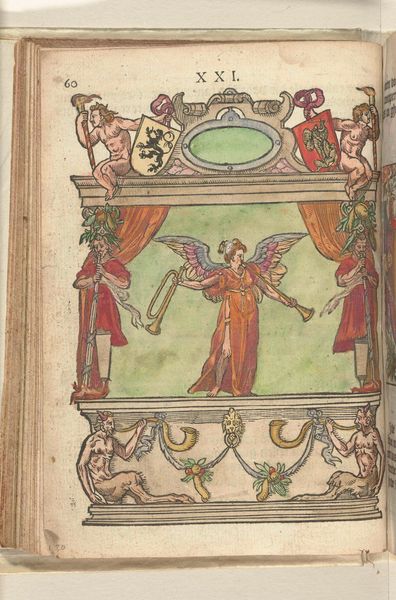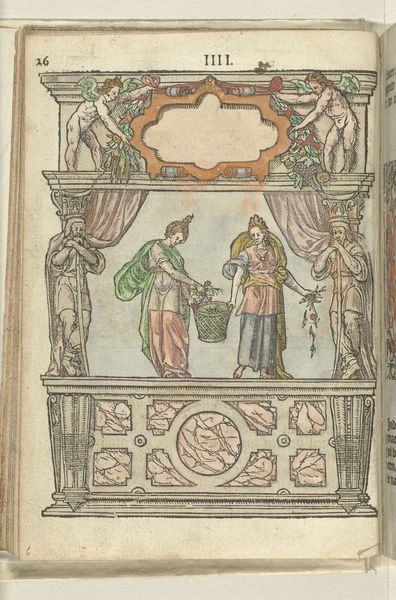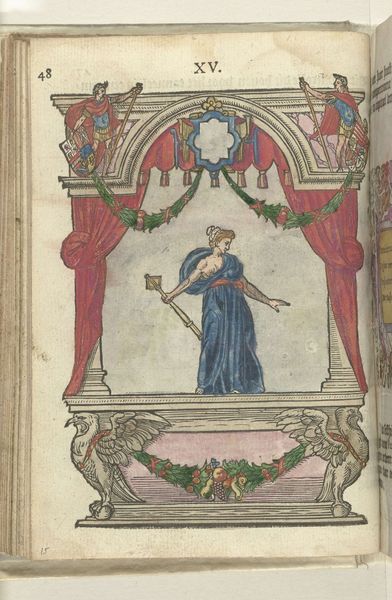
drawing, coloured-pencil, print, paper, ink, engraving
#
drawing
#
coloured-pencil
#
allegory
#
narrative-art
# print
#
figuration
#
paper
#
11_renaissance
#
ink
#
coloured pencil
#
northern-renaissance
#
engraving
Dimensions: height 155 mm, width 115 mm
Copyright: Rijks Museum: Open Domain
Editor: This is "Toneel met personificatie van Reden," from 1578-1579, by Antoni van Leest, a drawing made with ink, colored pencil, and engraving. It feels theatrical and a little strange, like a scene from a play with heavy symbolism. What's your take on this? Curator: The "stage" aspect is key. The artist is not just presenting an image, but also a platform. In the late 16th century, these visual representations of abstract concepts, like 'Reden' or 'Reason,' were important tools for shaping public perception. How do you think the presentation of 'Reason' on a stage affects its message? Editor: Hmm, it makes it seem more… constructed? Like a performance, rather than an inherent truth. Curator: Precisely. Think about the intended audience and its purpose. It aims to reinforce the authority of reason, likely aligned with the political or religious powers that commissioned or disseminated this work. This "theater" gives Reason a powerful, almost divine, status. Do you see any clues in the costuming or props? Editor: The figure holds both a bowl, maybe symbolizing sustenance or wisdom, and a large sword and key together. Seems like an interesting mix of gentle offering and strength. Curator: That duality is central to its function. Reason is not just about intellect, it is a justification for power. These are displayed not as simple virtues, but as tools that provide power. The trappings and symbolic setting communicate with those social dynamics in the period. Editor: So, it's less about personal enlightenment and more about legitimizing control? That framing really changes my perspective. Curator: It highlights the crucial relationship between art and power. We see here that seemingly simple allegorical prints could actively participate in the political discourse of their time. Editor: That’s a really insightful way to understand its historical impact! It really brings a lot to a seemingly straightforward image.
Comments
No comments
Be the first to comment and join the conversation on the ultimate creative platform.
